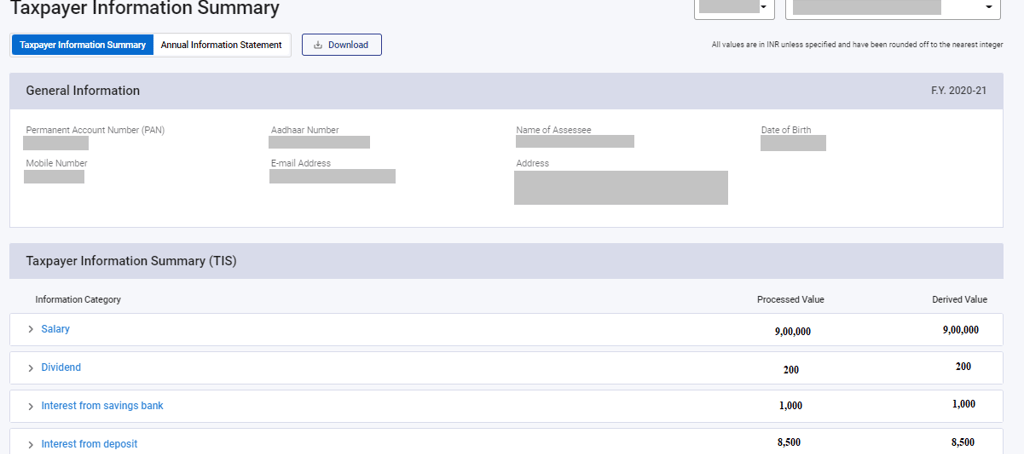Income Tax form AIS (Annual information system).
What is income tax form AIS, its advantages and disqualifications?
Advocate Faisal Ahmad
1/29/20251 min read


Income Tax form AIS
The Income Tax Form AIS, or Annual Information Statement, is a pivotal (i.e. it's very important because other things depend on it) document that provides taxpayers with a comprehensive overview of their financial transactions reported to the Income Tax Department.
This form consolidates various types of income information, such as interest on savings bank deposits & interest on FD, dividends received on securities and shares, mutual funds, SFT Transactions, and other investments, enabling individuals to cross-check their earnings.
Benefits of income tax form AIS
One key benefit of the income tax form AIS is that it promotes transparency in tax compliance, helping taxpayers verify their financial data before filing returns.
Additionally, it helps identify discrepancies in income reporting, minimizing the chances of errors and potential penalties. By utilizing the AIS form, taxpayers can ensure they accurately declare income, maximize deductions, and ultimately simplify the filing process while maintaining adherence to tax regulations.
DISADVANTAGES OF INCOME TAX FORM AIS
The form AIS (Annual Information Statement) under income tax has several disadvantages that taxpayers need to be aware of.
Firstly, it may lead to increased complexity in tax filing, as taxpayers must navigate additional documentation and ensure compliance with the data provided. This can be particularly burdensome for individuals with multiple streams of income or sources of investment. Moreover, reliance on AIS may result in discrepancies between reported income and the actual income, leading to potential audits or penalties.
Additionally, taxpayers may struggle with the lack of clarity and guidance on how to utilize AIS effectively, which can create confusion and anxiety during the filing process. Lastly, the potential for erroneous information reported by third parties can adversely affect taxpayers who may need to rectify inaccuracies, wasting valuable time and resources.
Overall, while AIS aims to improve transparency, its drawbacks can complicate the tax filing process for many individuals.
